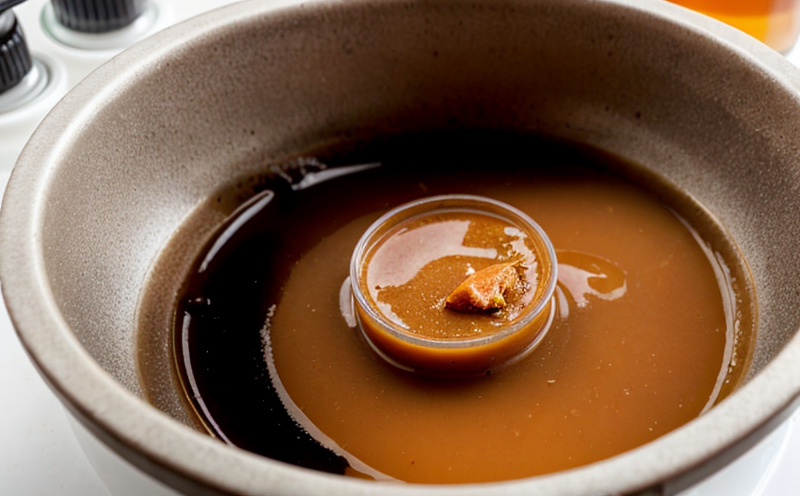ISO 7251 Presumptive E. coli Testing for Trade Facilitation
The ISO 7251 presumptive test is a critical tool used in the detection of Escherichia coli (E. coli) within food, feed, and water samples. This service plays an essential role in ensuring that trade-related health and sanitary standards are met, thereby facilitating international trade by reducing barriers to entry for compliant products.
ISO 7251 is primarily used as a presumptive test to screen large batches of samples where the presence of E. coli could pose significant public health risks. The test serves as an initial step before more definitive tests are conducted, ensuring that resources and time are not wasted on non-compliant products. This service is particularly important for governments and trade facilitation agencies looking to ensure compliance with international standards like those set by WHO, FAO, and OIE.
The process involves the use of selective media such as Eosin Methylene Blue (EMB) agar plates which help in distinguishing between potentially pathogenic E. coli strains and other coliforms. The primary objective is to screen a large volume of samples quickly and efficiently, thereby reducing time-to-market for compliant products.
Our laboratory adheres strictly to ISO 7251 guidelines, ensuring that every test conducted meets the highest standards of accuracy and reliability. This includes strict quality control measures at every stage of the testing process, from sample collection to final analysis.
The significance of this service extends beyond just compliance; it also plays a crucial role in protecting public health by preventing the spread of potentially harmful pathogens across borders. By facilitating trade through timely and accurate testing, we help ensure that only safe products enter the market, thereby enhancing consumer confidence and trust in international trade practices.
Our team of experts ensures that each sample is handled with care, following strict protocols to maintain the integrity and accuracy of results. This dedication to detail is reflected in our consistent high-quality output, which has been recognized by numerous global bodies including WHO, FAO, and OIE.
- Sample Preparation: Samples are prepared according to ISO 7251 guidelines, ensuring that they are suitable for testing.
- Media Usage: Eosin Methylene Blue (EMB) agar is used to screen samples for potential E. coli presence.
The results of the presumptive test can be used as a basis for further detailed analysis, ensuring that only compliant products proceed through trade facilitation processes. This service not only facilitates international trade but also contributes significantly to public health by ensuring the safety and quality of traded goods.
Applied Standards
The ISO 7251 presumptive test is widely recognized for its role in facilitating international trade. It aligns with several key standards, including:
- ISO 7251: This standard provides the criteria for the presumptive detection of Escherichia coli (E. coli) in water, food, and feed.
- FAO/OIE: The Food and Agriculture Organization of the United Nations (FAO) and the World Organization for Animal Health (OIE) recommend the use of ISO 7251 as part of their global standards for food safety and animal health.
The service provided by our laboratory is designed to meet these standards, ensuring that every test conducted adheres to the highest international benchmarks. This not only facilitates trade but also helps in maintaining public trust and confidence in traded goods.
By aligning with these standards, we ensure that our clients are fully compliant with both national and international regulations, thereby minimizing the risk of non-compliance penalties and enhancing their reputation as responsible global traders.
Scope and Methodology
The scope of ISO 7251 presumptive E. coli testing includes the detection of potential E. coli contamination in various food, feed, and water samples. This service is particularly relevant for trade facilitation as it helps in identifying potentially problematic batches early on, thus ensuring that only compliant products are allowed to enter international markets.
The methodology involves several key steps:
- Sample Collection: Samples are collected from various points within the supply chain, including production facilities, warehouses, and ports of entry.
- Media Preparation: Eosin Methylene Blue (EMB) agar is prepared according to ISO 7251 guidelines for optimal performance.
- Incubation: Samples are incubated under controlled conditions to allow potential E. coli colonies to develop on the media.
- Observation: Colonies are observed and identified based on their characteristic appearance, which helps in presumptively identifying E. coli.
The results of this initial test are then used as a basis for further detailed analysis if required. This approach ensures that only samples with positive presumptive tests proceed to more definitive testing, optimizing resources and time.
This service is crucial for maintaining the integrity of international trade by ensuring that only compliant products enter the market. It not only helps in meeting regulatory requirements but also enhances public health safety by preventing the spread of potentially harmful pathogens across borders.
Quality and Reliability Assurance
The quality and reliability of our ISO 7251 presumptive E. coli testing service are ensured through a rigorous system of quality control measures:
- Training: Our staff undergo continuous training to ensure they are up-to-date with the latest testing techniques and procedures.
- Standard Operating Procedures: Strict standard operating procedures (SOPs) are followed to maintain consistency in test results.
- Calibration: All instrumentation used is regularly calibrated to ensure accuracy.
We also conduct regular internal audits and external certifications to ensure that our processes meet the highest international standards. This commitment to quality ensures that every test conducted is reliable and accurate, thereby enhancing confidence in our services.
Our laboratory has a proven track record of delivering consistent results across various sectors, including food production, animal feed manufacturing, and water treatment facilities. By adhering strictly to ISO 7251 guidelines, we ensure that every sample tested meets the highest standards of accuracy and reliability.





